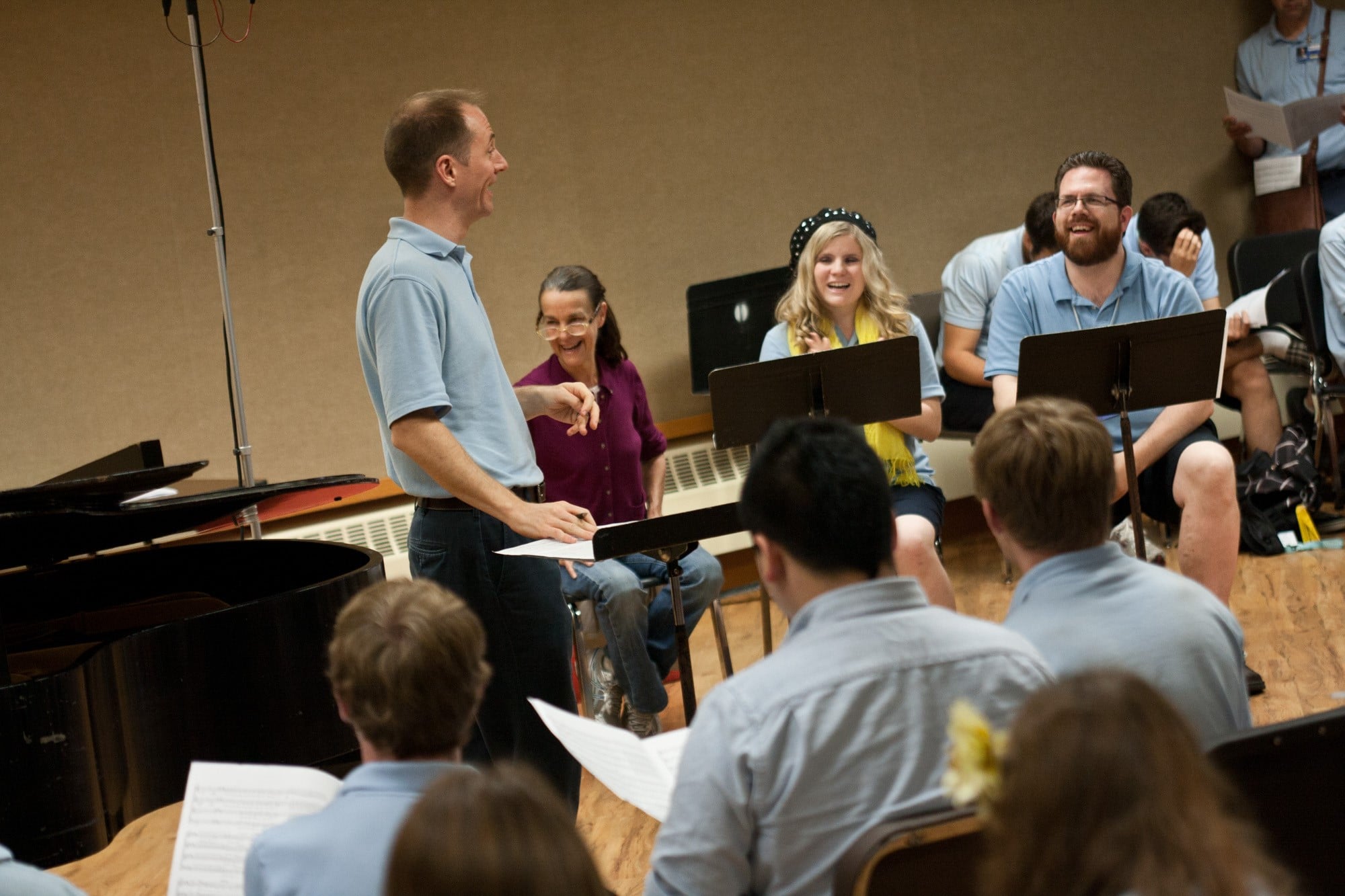/ News Posts / A Resource for Diversity
A Resource for Diversity
Rob Deemer wins the 2018 ASCAP Foundation Deems Taylor/Virgil Thomson Award.
By Lori Schwartz Reichl
This article first appeared in the April 2019 issue of Teaching Music magazine.
“I began a spreadsheet of women composers as a resource for my composition studio, but it soon grew into something that I thought would be useful for everyone.”
The American Society of Composers, Authors and Publishers (ASCAP) has bestowed the ASCAP Foundation Deems Taylor/Virgil Thomson Media/Internet Award on Rob Deemer, an associate professor of music composition and the director of the Institute of Composer Diversity at the State University of New York (SUNY) at Fredonia, as well as creator of The Composer Diversity Database. The award was presented to Deemer because of the positive impact of this diverse resource on musical programming.

Rob Deemer Headshot
In the summer of 2016, “I began a spreadsheet of women composers as a resource for my composition studio, but it soon grew into something that I thought would be useful for everyone. It just blossomed from there, first as a database of women composers and now one that includes composers of color and non-binary composers as well,” notes Deemer. “Last year, several of my students signed up for independent studies to help with the database, and several more are still helping us. It took a while to figure out what data points would be most useful. Currently, the main Composer Diversity Database allows folks to search by gender identity, living or deceased, racial, ethnic, cultural background, and location, as well as the genres and subgenres of music they’ve composed.”

Photo: Lori Deemer
Deemer proudly proclaims that he and his colleagues have not stopped adding to the database. “We usually add names every week or two.” The second version of the website, which launched on January 28, 2019, includes wind band music compiled by South Carolina music educator Christian Michael Folk. “So, not only are we looking at expanding the Composer Diversity Database, but we’re going to be regularly adding new websites for different genres over the next year.”
Deemer and his colleagues are also excited to announce that they have “started an Institute for Composer Diversity at SUNY Fredonia, which will work on many initiatives beyond our databases toward the goal of greater diversity in concert programming and curriculum development at the K–12, higher education, and professional levels. I also now have a volunteer staff of seven colleagues in Fredonia and around the country to help me with the database, the newly-formed Institute, and the website.”
NAfME is grateful for this resource, because it is dedicated to the celebration, teaching, and advocacy of music created by composers from historically underrepresented groups. It ties into Standards-based learning, and it emphasizes inclusion. Deemer, who also serves as the Composition Council Chair for NAfME, notes, “The Council is hoping to organize a composition committee in every state, which will help more students of every gender and racial/ethnic background to have more opportunities to compose.” He hopes that the Council can be a greater voice in programming diversity throughout NAfME.
Deemer, who is an active member of the New York State School Music Association, shares, “While I can’t talk about any specific initiatives at the moment, we do hope to diversify the solo and ensemble lists as well as publisher and distributor catalogues across the United States over the next few years.”
Composer Diversity Database
The Institute for Composer Diversity (composerdiversity.com) at the State University of New York at Fredonia is “dedicated to the celebration, education, and advocacy of music created by composers from historically underrepresented groups through online tools, research-based resources, and sponsored initiatives.”
Visit this user-friendly resource to access a wealth of information about composers in demographic categories such as American Indian/Alaska Native, Black, Latin(x)/Latin American, Women, Non-Binary, and more. Searches can also be made by geographic area. The composer pages include photos of the creators and list their works in all genres.
Interested in reprinting this article? Please review the reprint guidelines.
The National Association for Music Education (NAfME) provides a number of forums for the sharing of information and opinion, including blogs and postings on our website, articles and columns in our magazines and journals, and postings to our Amplify member portal. Unless specifically noted, the views expressed in these media do not necessarily represent the policy or views of the Association, its officers, or its employees.
Catherina Hurlburt, Marketing Communications Manager. June 4, 2019. © National Association for Music Education (NAfME.org)
Published Date
June 4, 2019
Category
- Diversity, Equity, Inclusion, and Access (DEIA)
- NAfME News
- Technology
Copyright
June 4, 2019. © National Association for Music Education (NAfME.org)





